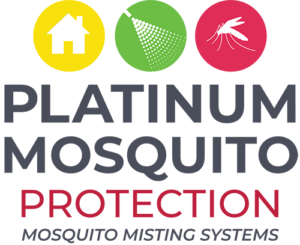
Separate fact from fiction about mosquitos
If you’re going to dislike mosquitos – and who can blame you – it’s only fair to dislike them for truthful reasons. Thanks to the Internet and social media, fake news runs rampant. People share opinions and hearsay, and it’s misinterpreted as fact.
It’s still bad news for mosquitos when the fact is separated from fiction, and it’s doubtful that these pests are ever going to win the public relations game. Myths about mosquitos are worth dispelling, however, because what you don’t know – or are getting wrong about mosquitos – really can harm you.
Here are some common mosquito myths, and the truths behind them:
Mosquito-borne illnesses aren’t much of a problem in the United States
This truly is dangerous to believe. The latest compiled statistics by the Centers for Disease Control and Prevention shows that there were over 96,000 diseases caused by mosquitos, ticks, and fleas in 2016. The number has tripled from 2004 to 2016. The list of harmful diseases in mosquitos found in the United States continues to grow and includes:
- Zika
- West Nile Virus
- Viruses associated with encephalitis
- Malaria
- Dengue
- Chikungunya
- Yellow Fever
And our four-legged furry companions have to worry about dirofilarial immitis – aka heartworm.
Mosquitos are a problem all over the planet
This is a myth, but only because of the statement itself. Surprisingly, mosquitos are found in Siberia and the Arctic tundra during summer months. They’ve yet to be found in Antarctica, however.
Residents and travelers around the world will come in contact with disease-carrying mosquitos in many places. However, some species – especially the one carrying the Zika virus – are not typically found at elevations above 6,500 feet. If you want a travel vacation relatively free of mosquito worries, head up into the mountains.
All mosquitos bite
You probably know this is a myth. Male mosquitos are actually vegetarians. Only the female and only those of certain species will bite us. She needs the nutrients found in blood to produce eggs.
Some people’s blood “tastes” better to mosquitos than others
The jury’s still out on this, but generally, it’s not “taste” that attracts a mosquito. They are attracted to the carbon dioxide from our breath, as well as body heat – and perhaps most important, lactic acid.
Most of these elements of attraction work together. When you exercise outdoors, your muscles will produce lactic acid. Your body temperature will increase, and you’ll also produce more carbon dioxide.
Studies seem to indicate that people with Type O blood are bitten more often by mosquitos. Research has yet to uncover an explanation.
What you wear makes all the difference to mosquitos
There’s some truth to this, as it turns out. Researchers have determined that mosquitos are attracted to colors similar to the non-human creatures they prey on. So, you don’t want to dress resembling anything dark-colored and large.
You will reduce – not prevent – being bitten by mosquitos when you wear light-colored and loose-fitting clothing. The light colors will make you look less like something a mosquito wants to bite, and the loose fit makes it difficult for her to reach your skin through the clothing.
Citronella candles are effective in repelling mosquitos
It can help, but it’s far from effective. Citronella helps to mask the chemicals we secrete that attract mosquitos. A mosquito will still be able to detect those chemicals if it’s close enough to you, however. Citronella candles often offer a small radius of protection.
When they are helpful, it’s because they’re used in small and enclosed areas like a patio. The repellant effects of citronella candles are rendered useless by any wind.
This natural approach appears to offer less protection than sprays containing diethyltoluamide (DEET). On the other hand, using sprays with a DEET concentration above 50% can cause irritation and health concerns.
A great way to cut through the myths surrounding these backyard pests – and simply get rid of them – is to turn to professionals who can provide an effective mosquito-control system.
